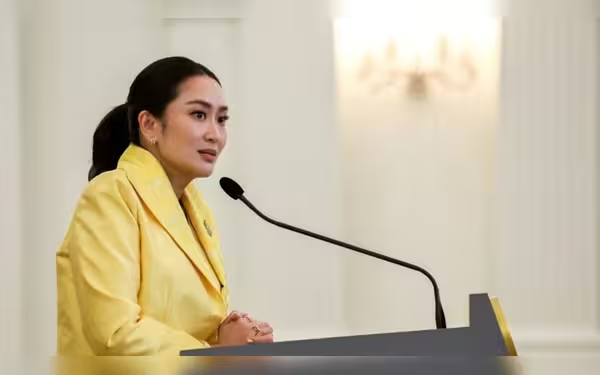Saturday, November 16, 2024 05:31 PM
Thai PM Urges ASEAN Action on Myanmar Crisis
- ASEAN must act to restore peace in Myanmar.
- Thailand ready to mediate between conflicting parties.
- Limited success of ASEAN's Five Point Consensus initiative.
 Image Credits: channelnewsasia
Image Credits: channelnewsasiaThai PM emphasizes ASEAN's crucial role in resolving the ongoing Myanmar crisis ahead of the upcoming summit.
BANGKOK: The ongoing crisis in Myanmar has drawn significant attention from regional leaders, particularly as the Association of Southeast Asian Nations (ASEAN) prepares for an important summit in Laos. Since February 2021, Myanmar has been engulfed in chaos following a military coup that ousted an elected civilian government. This event triggered widespread protests, which have since escalated into an armed rebellion against the ruling military junta. The situation has raised urgent questions about the role of ASEAN in restoring peace and stability in the region.
On October 7, Thailand's Prime Minister Paetongtarn Shinawatra emphasized the necessity for ASEAN to take a proactive stance in resolving the Myanmar crisis. Speaking at an event in Bangkok, she stated, "ASEAN must play an important role in bringing peace back to Myanmar as soon as possible." This statement underscores the growing concern among ASEAN leaders regarding the deteriorating situation in Myanmar and the need for collective action.
Prime Minister Paetongtarn also highlighted Thailand's willingness to collaborate with Malaysia, which will assume the ASEAN chair next year, to explore diplomatic avenues for conflict resolution. She expressed Thailand's readiness to act as a mediator to facilitate dialogue between the conflicting parties. This approach reflects a commitment to finding a peaceful solution, despite the challenges posed by the junta's refusal to engage in talks with its opponents, whom they label as terrorists.
The ASEAN bloc has previously introduced a peace initiative known as the Five Point Consensus, aimed at addressing the crisis. However, this effort has seen limited success since its announcement in April 2021, with calls for dialogue largely unheeded. The junta's reluctance to negotiate has left many questioning the effectiveness of ASEAN's strategies and its ability to influence the situation in Myanmar.
As the summit approaches, the international community watches closely to see how ASEAN leaders will address the Myanmar crisis. The stakes are high, not only for the people of Myanmar but also for the credibility of ASEAN as a regional organization. The need for a unified and effective response is more pressing than ever, as the ongoing conflict continues to have far-reaching implications for regional stability and security.
The situation in Myanmar serves as a critical test for ASEAN's diplomatic capabilities. The call for a more active role in resolving the crisis reflects a growing recognition that regional cooperation is essential in addressing complex challenges. As leaders gather in Laos, the hope is that they will prioritize peace and dialogue, paving the way for a brighter future for Myanmar and its people.













